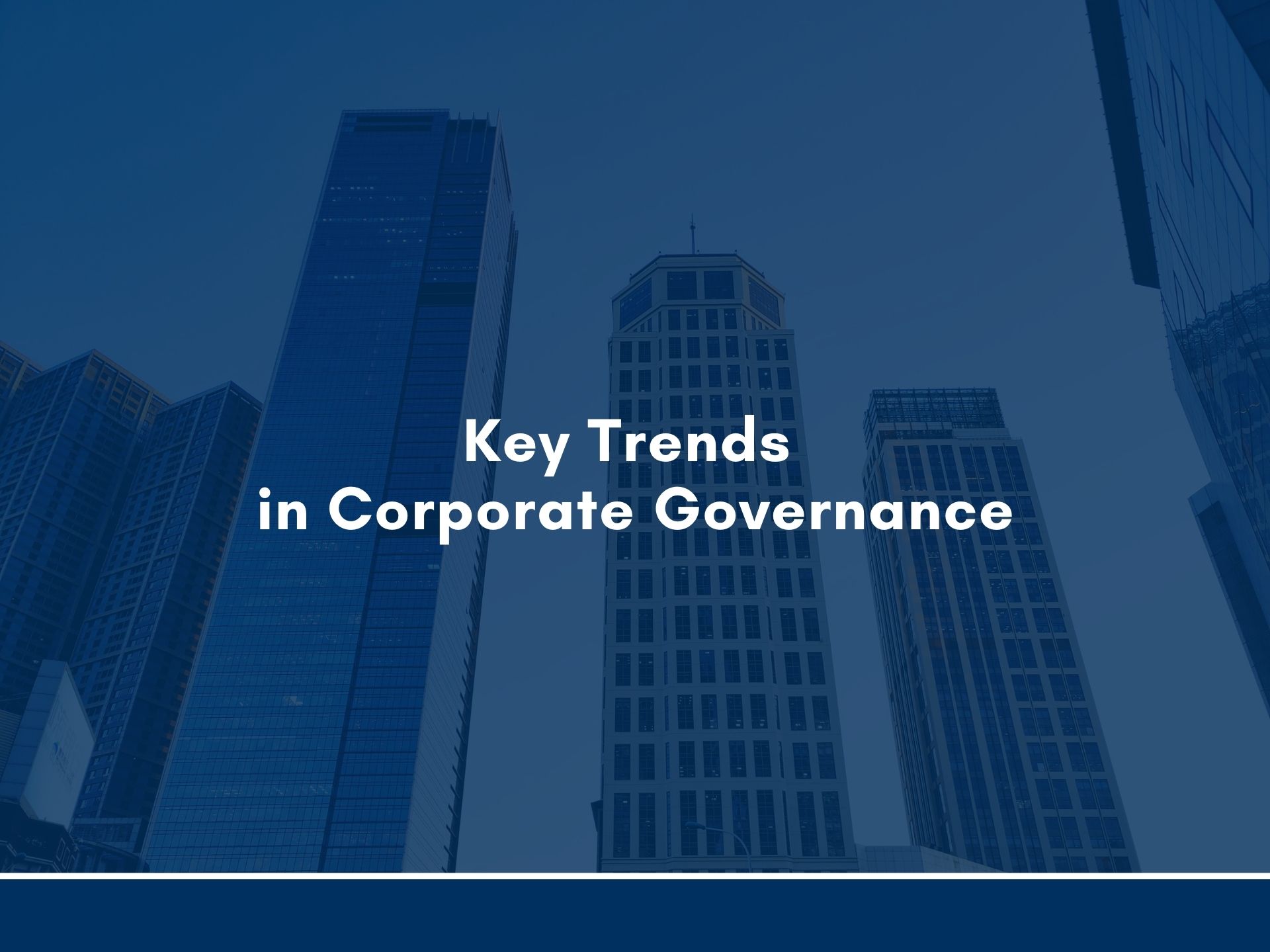
07 Sep Key Trends in Corporate Governance
In a recent article in the Harvard Law School Forum on Corporate Governance (Link), global and regional trends in Corporate Governance were reviewed. This has been based on the yearly review by Russell Reynolds Associates (Link) who interviewed over 40 relevant global actors and asked them to identify corporate governance trends expected to impact boards and directors.
Undoubtedly, the COVID-19 pandemic and social justice movements have had far-reaching impacts on business and society around the world and many consider that we are at a critical moment that will allow for new paths to be carved and followed in future years. Corporate governance trends may still vary somewhat across regions, but corporations globally are experiencing a reckoning around their role in society. For instance, expectations from independent directors who oversee corporations have never been higher and, particularly, in the EU there has been increasing challenges concerning the independence of Boards.
Analytically, according to the Russel Reynolds Report findings the following are considered the global trends for the current year:
Climate Change Risk – The pandemic forced the ‘S’ of ESG (environmental, social and governance factors) higher up the corporate agenda as companies sought to reassure stakeholders that they took the safety of their workers and communities seriously. Climate change is expected to remain in focus. In the EU, with an increasing number of firms setting their own environmental targets, the ‘E’ in ESG is currently overshadows the ‘S’ and the ‘G’. There is increased sensitivity over how firms are taking climate change risk into account. Comparatively, in the UK, the ‘S’ of ESG is currently the most important focus in the UK context. Possibly, according to an S & P report, the closer integration of ESG metrics with executive pay will also gather pace. This will ensure a longer-term focus on and alignment of interests between companies and their executives, shareholders, and ultimately society.
Diversity, Equity & Inclusion (DE&I) – Social and racial injustice issues have gained unprecedented attention and this has been linked to global protests and a social awakening that were initiated following the murder of George Floyd. Increased demand for racial and ethnic diversity is gaining momentum (especially in the UK and the US) while gender diversity remains a long-standing priority for the past years. In the UK, in 2017 the Parker Review set a target for each FTSE 100 and FTSE 250 board to have at least one director of colour by 2020 and by 2024, respectively.
Convergence of Sustainability Reporting Standards – The global effort to identify and report material ESG risks has resulted in a proliferation of reporting standards. The aim is to create a comprehensive corporate reporting system that will soon allow investors to gather a complete and comparable view of a company’s material risks (including ESG). In the EU, the Financial Reporting Advisory Group (EFRAG) has been engaged in ongoing developments related to sustainability reporting and common applicable standards.
Human Capital Management – The largest institutional investors continue to increase their expectations around board oversight of human capital management (HCM) and corporate culture. In many regions, demand for disclosure of more HCM data (e.g., gender pay gap, safety incidents, employee turnover) has skyrocketed.
Return of Activism & Increased Capital Markets Activity – Activists will be looking for new scenarios to unlock value and will ask boards, “What is your obligation to further drive value creation even when the company is performing well?” There has been a sharp increase in special purpose acquisition companies (SPAC) and subsequent mergers, and private equity is sitting on an estimated $1.5 trillion+ of “dry powder” for future market activity.
Virtual Board & Shareholder Meetings: Here to Stay – Russell Reynolds works with hundreds of public company boards around the world each year and, based on their engagement, it is evident that many boards will develop a hybrid calendar where at least one meeting per year remains virtual and many ad hoc and committee meetings stay online. Many companies—where there is an option—will use some form of combined in-person and virtual shareholder meetings.
Adonis Pegasiou
EIMF Academic Director
Training Programmes by Adonis Pegasiou






